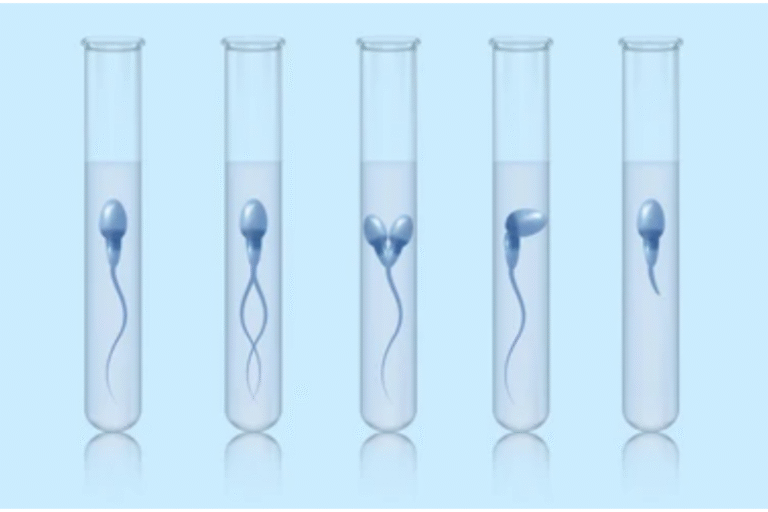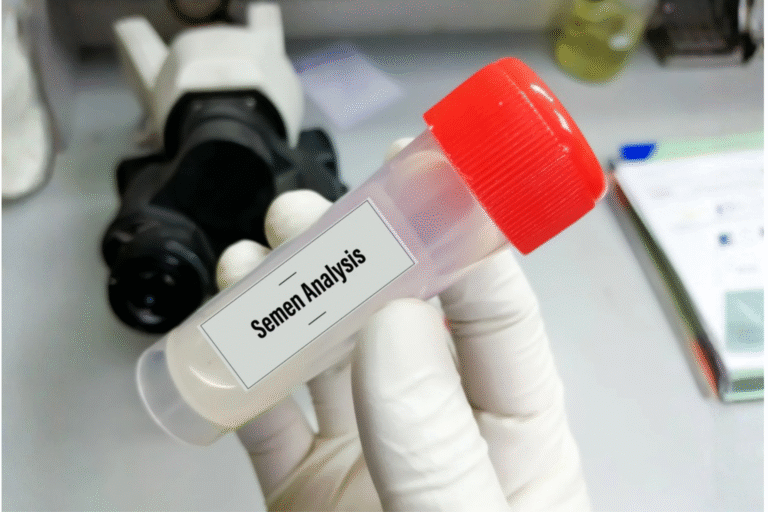When you’re trying to conceive, it can feel like everyone has an opinion : family, friends, social media, even strangers. But while the advice may be well-meaning, it’s often based on outdated beliefs or misinformation.
When you’re trying to conceive, it can feel like everyone has an opinion : family, friends, social media, even strangers. But while the advice may be well-meaning, it’s often based on outdated beliefs or misinformation.
We meet individuals and couples every day who are carrying the weight of these myths. Some have delayed treatment. Some feel ashamed or confused. Others blame themselves.
It doesn’t have to be this way. Fertility is deeply personal, but it should never be mysterious. In this post, we want to gently and clearly debunk some of the most common myths we encounter, so you can move forward with knowledge, confidence, and support.
Fertility myths not only create confusion but can also delay the right treatment and add unnecessary emotional weight to an already sensitive journey. By separating fact from fiction, you empower yourself with clarity and confidence. At IVF Spring, we’re here to provide compassionate, evidence-based guidance—so you can move forward informed, supported, and hopeful about your path to parenthood.
Fertility myths not only create confusion but can also delay the right treatment and add unnecessary emotional weight to an already sensitive journey. By separating fact from fiction, you empower yourself with clarity and confidence. At IVF Spring, we’re here to provide compassionate, evidence-based guidance, so you can move forward informed, supported, and hopeful about your path to parenthood.
Myth 1: Myth 1: “Infertility is Always a Woman’s Problem”
The truth: Infertility affects men and women equally.
Around one-third of infertility cases are due to female factors, one-third to male factors, and the remaining third to a combination of both or unexplained causes.
What this means for you: We always recommend that both partners undergo evaluation from the very beginning. This helps avoid delays and ensures you’re both fully informed. Male fertility testing is often quick and affordable, and many male factor issues like low sperm count or poor motility can be treated with medication, lifestyle changes, or minor procedures.
The bottom line: Fertility is a shared responsibility. There’s no blame, only a need for accurate diagnosis and mutual support.

Myth 2: “You Can’t Get Pregnant After 35”
The truth: Fertility does decline with age, but pregnancy is still very possible after 35.
It’s true that both the quantity and quality of eggs decrease over time, especially after your mid-thirties. But that does not mean pregnancy is out of reach. Many women conceive naturally or with help well into their late thirties and early forties.
What this means for you: Modern fertility treatments, including IVF and egg freezing, have made it easier to plan and manage fertility even with age-related decline. If you’re over 35 and trying to conceive, consider speaking with a fertility specialist sooner rather than later.
The bottom line: Age matters, but it doesn’t define your chances. Early evaluation and timely treatment can make all the difference.
Myth 3: “Birth Control Pills Cause Infertility”
The truth: They don’t.
Birth control pills temporarily prevent ovulation, but they do not harm your long-term fertility. Most women resume normal cycles within a month or two of stopping the pill.
In fact, using birth control pills can actually protect fertility by reducing the risk of conditions like ovarian cysts, endometriosis, and pelvic infections.
What this means for you: If you’re planning to stop birth control and start trying, give your body a short adjustment period. But there’s no evidence that past use of the pill will affect your ability to conceive.
The bottom line: Birth control is safe, reversible, and in some cases, protective of your reproductive health.

Myth 4: “IVF Always Results in Twins or Triplets”
The truth: Today, most IVF treatments aim for a single healthy pregnancy.
In the early days of IVF, transferring multiple embryos was common to increase success rates. This did lead to higher rates of multiple pregnancies. But with today’s technology, we can select the best-quality embryo and transfer just one, especially in younger patients or those with good embryo quality.
What this means for you: We prioritize safety and long-term health, both for you and your baby. By transferring a single, healthy embryo and freezing others for future use, we maintain high success rates while reducing risk.
The bottom line: IVF today is safer, more precise, and focused on one healthy baby at a time.
Myth 5: “Egg Freezing Damages Eggs”
The truth: When done correctly, egg freezing is safe and effective.
Thanks to a technique called vitrification (ultra-rapid freezing), eggs can now be frozen without forming damaging ice crystals. Studies show survival rates of over 95% for frozen eggs, and pregnancy outcomes are comparable to using fresh eggs.
What this means for you: Egg freezing offers women the option to preserve their fertility for later, especially if they’re not ready to conceive now. Choosing an experienced fertility clinic ensures the best results.
The bottom line: Egg freezing is a safe, scientifically backed way to preserve your fertility on your terms.

Myth 6: “IVF Babies Aren’t Really Yours”
The truth: IVF babies are biologically and emotionally yours, just as much as any child conceived naturally.
In a standard IVF cycle, we use your eggs and your partner’s sperm. Fertilization happens in our lab, not in your body but everything else is the same. The embryo that forms is 100% your biological child, and it grows inside your womb just like in any pregnancy.
What this means for you: You carry the pregnancy. You experience every change, every heartbeat, every kick. Your role is no different from any other mother’s.
In some cases, donor eggs or sperm may be recommended due to medical reasons. If that’s ever necessary, we guide you through the decision with honesty, counseling, and full consent, every step of the way.
The bottom line: IVF doesn’t change the love, the biology, or the bond. You are your baby’s parent in every sense of the word.
Myth 7: “Stress Is the Reason You’re Not Getting Pregnant”
The truth: Stress doesn’t cause infertility, and telling someone to “just relax” is not helpful.
Infertility can be incredibly stressful, but stress alone is rarely the cause. Most fertility issues arise from identifiable medical factors, such as ovulation disorders, blocked tubes, endometriosis, or sperm abnormalities.
That said, managing stress is still important. It can improve your emotional resilience and support your well-being throughout treatment.
What this means for you: If you’re struggling to conceive, you deserve a thorough medical evaluation and not blame. And if the process is overwhelming (as it often is), support groups, therapy, or relaxation practices can help.
The bottom line: Stress is not the root cause of infertility. You didn’t cause this. You’re not alone, and help is available.

Why Fertility Myths Matter
These myths persist because fertility can feel confusing and overwhelming. But misinformation can delay treatment, cause unnecessary guilt, and make an already difficult journey even harder.
What You Can Do
1. Trust reliable sources:
● Board-certified fertility specialists
● Peer-reviewed medical research
● Recognized fertility organizations
2. Be cautious of:
● General advice on social media
● Quick-fix fertility products
● Stories that ignore your individual situation
3. Ask for help: If you’ve been trying to conceive for:
● 6 months (if over 35), or
● 1 year (if under 35)
…it’s time to consider an evaluation.
We’re Here for You
At our Mumbai clinic, we believe in honest, compassionate fertility care. We take the time to answer your questions, explain your options, and walk this path with you, one step at a time.
If you have doubts, concerns, or simply want clarity, we’re here to talk. Your dreams of building a family are valid, and you deserve support grounded in facts, not fear.
Let’s move past the myths together.








